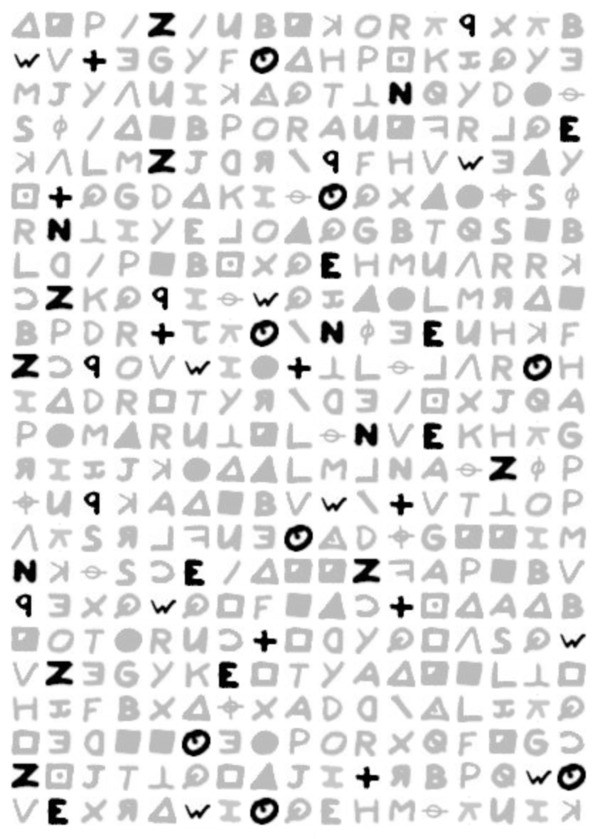It must have to do with the sequential property of the ciphertext.
Example cycle:
ABCDEABCDEABCDEABCDEABCDEExample cycle by 5 columns:
ABCDE ABCDE ABCDE ABCDE ABCDESensible?
Right, but why would they prefer certain columns? For example, there are other symbols occurring somewhat randomly between A and B, then between B and C, etc.
For instance, here are all the Z408 symbols that stand for plaintext E:

There are 5 strong cycles of the 7-symbol pattern. Are the individual symbols lining up with columns more than expected?
Right, but why would they prefer certain columns? For example, there are other symbols occurring somewhat randomly between A and B, then between B and C, etc.
Why? Because repeats are pushed out of the rows into the columns and the other symbols that may occur between A and B and so forth do not entirely destroy/randomize this property. Cycles also happen to be multiplicative, that is why measurement systems like smokie’s way of measuring all the symbol cycles work so well.
ABCDE ABCDE ABCDE ABCDE ABCDE
Ah, yes – I can see it being a relative effect, i.e. when compared to row-level repeats.
P.S. I so wish Webtoy would use consistent ASCII mapping across all Z ciphers! I nearly missed the fact that the same letters in Z13/Z32/Z340 map to entirely different symbols in each cipher. For example, 8 in Z13 is not the same symbol as 8 in Z340. Which is why I’m using actual pictograms in this post, and not ASCII, to avoid any confusion.
I finally corrected that particular annoyance. I’ve updated the transcriptions of Z13 and Z32 on the wiki as well as in CryptoScope.
